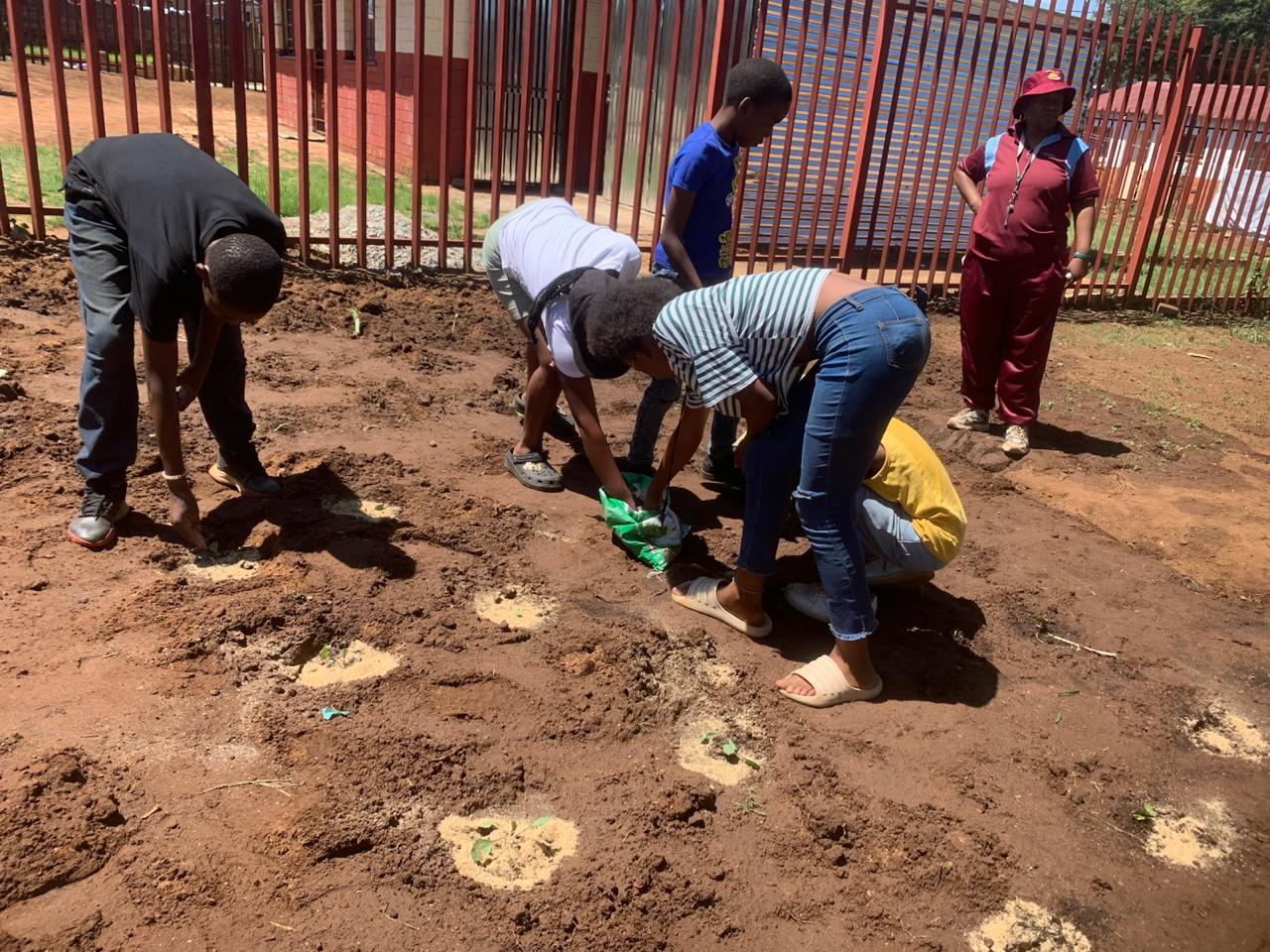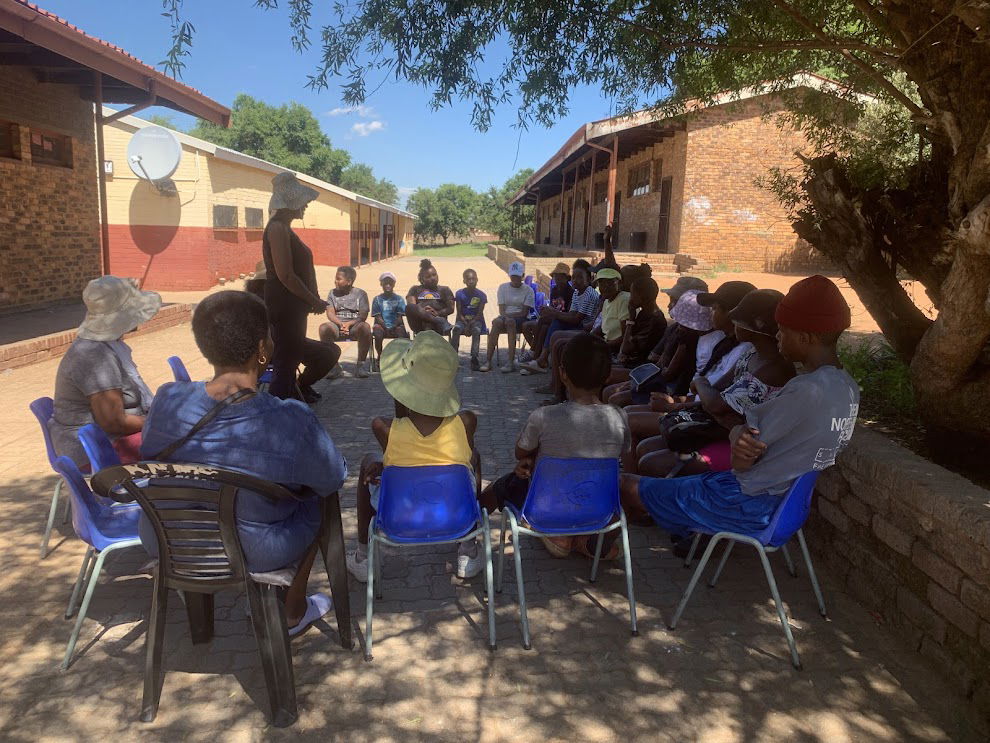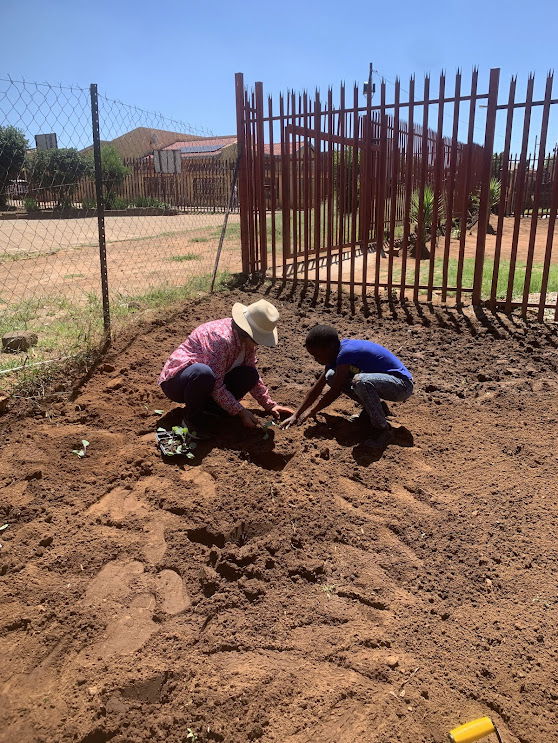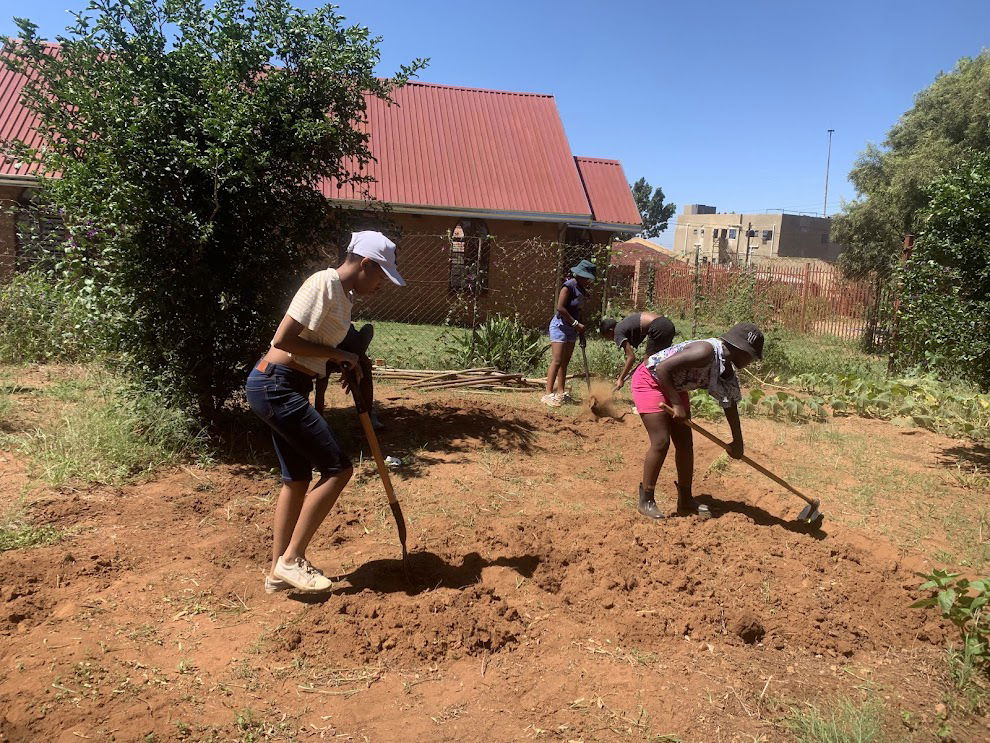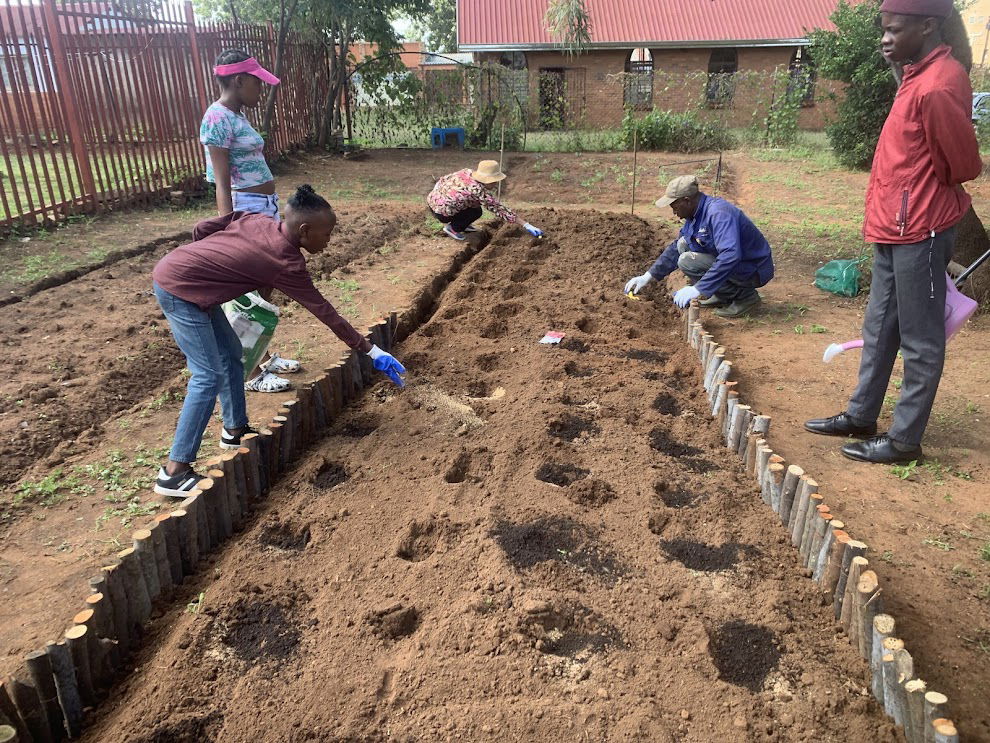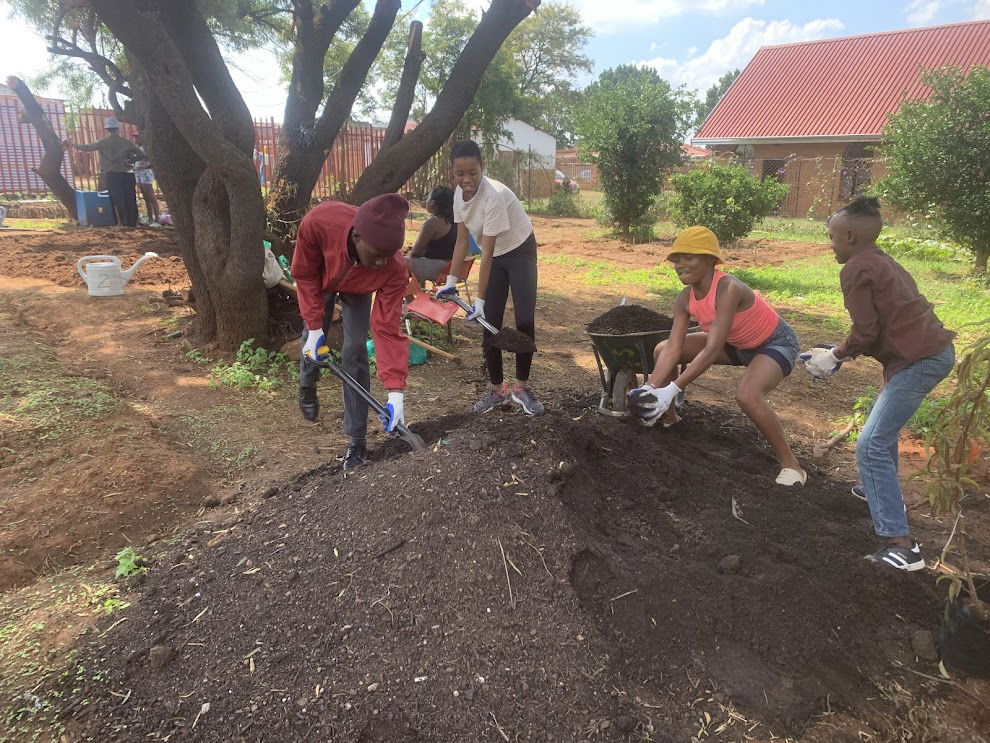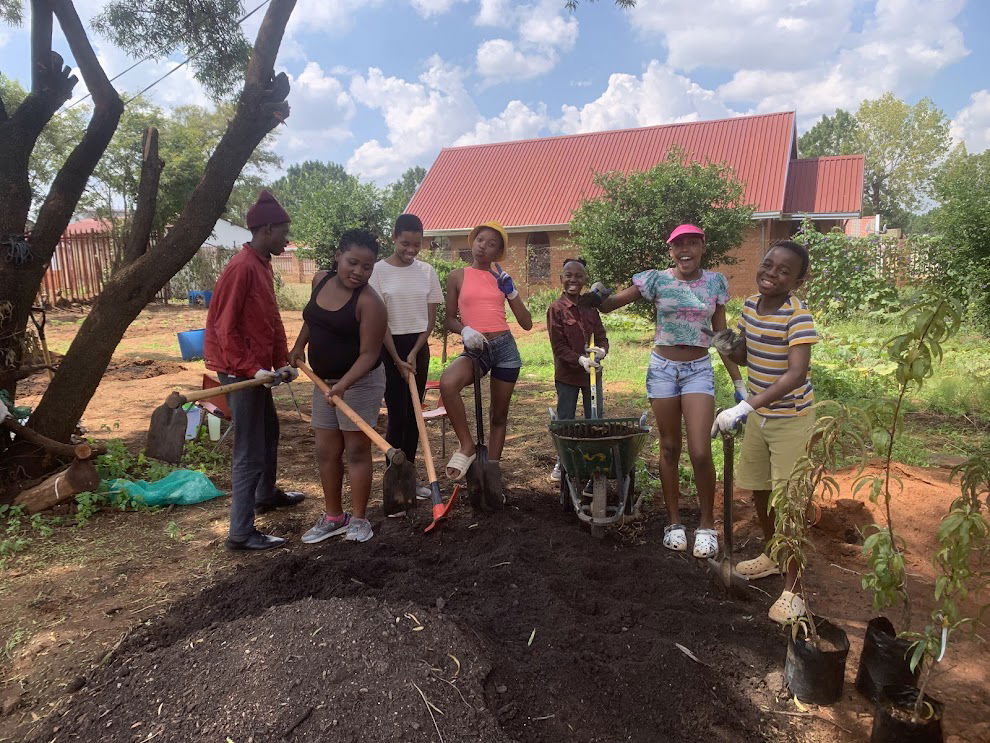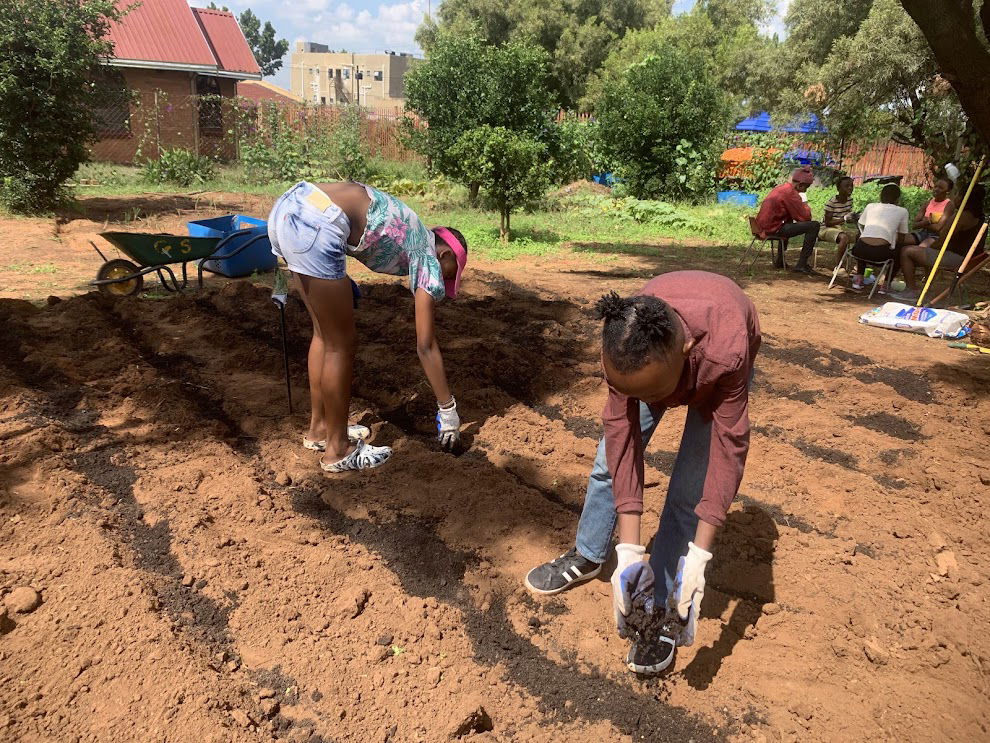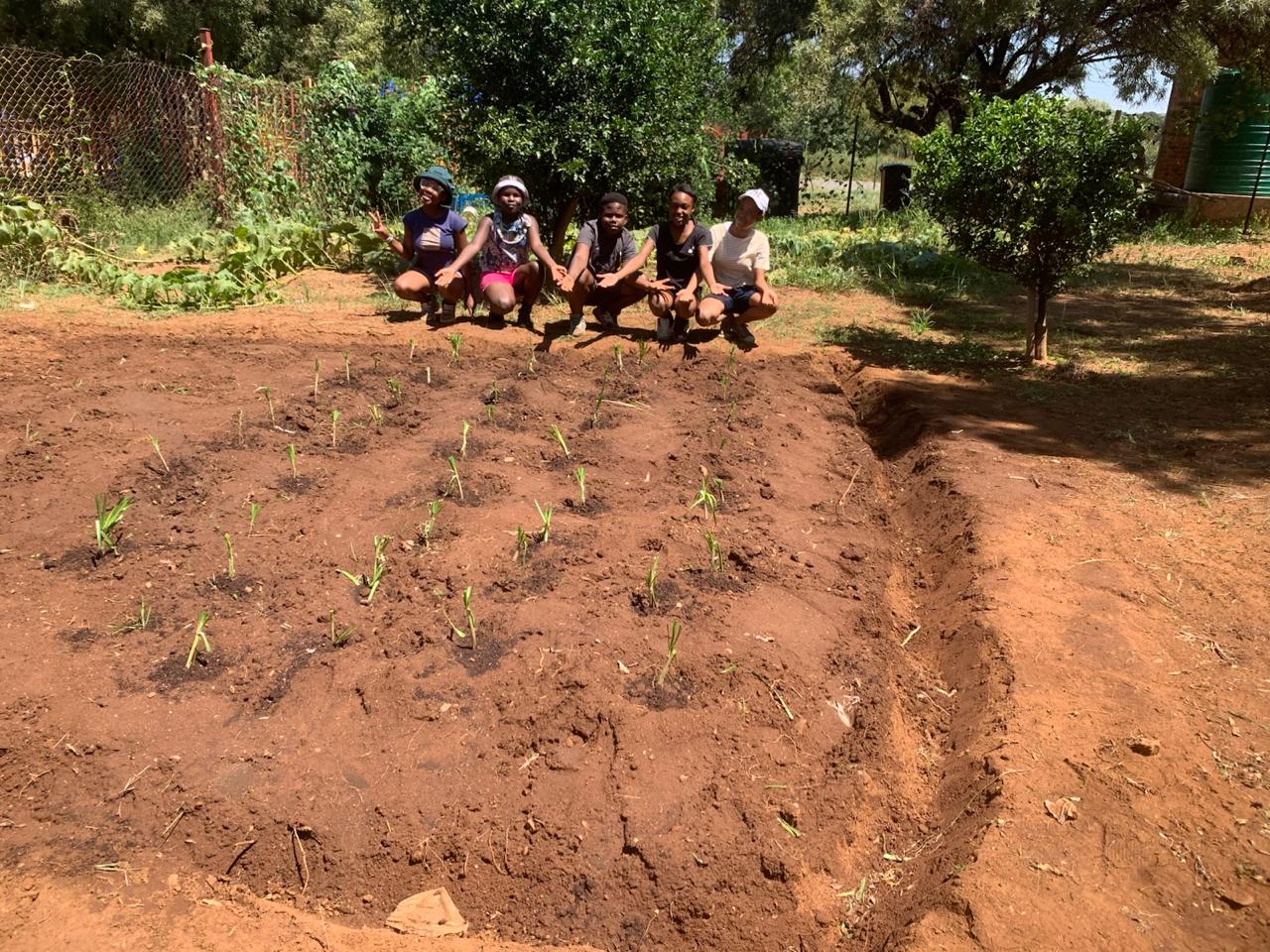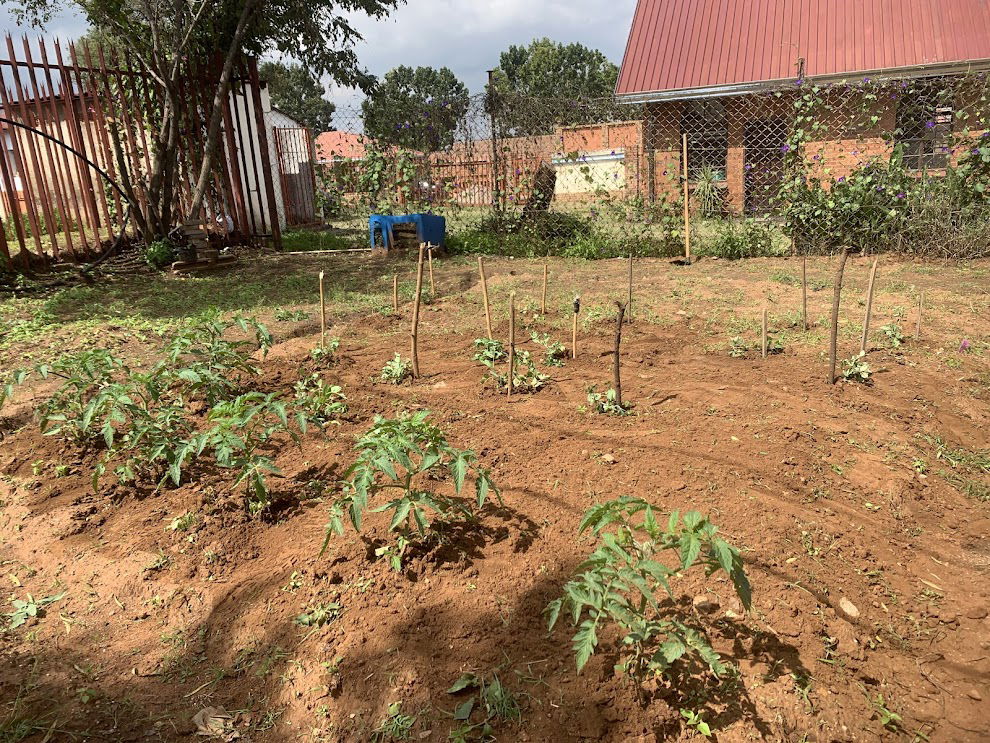WFWPSA Report on the Ongoing Gardening Project at Emisebeni Primary School.
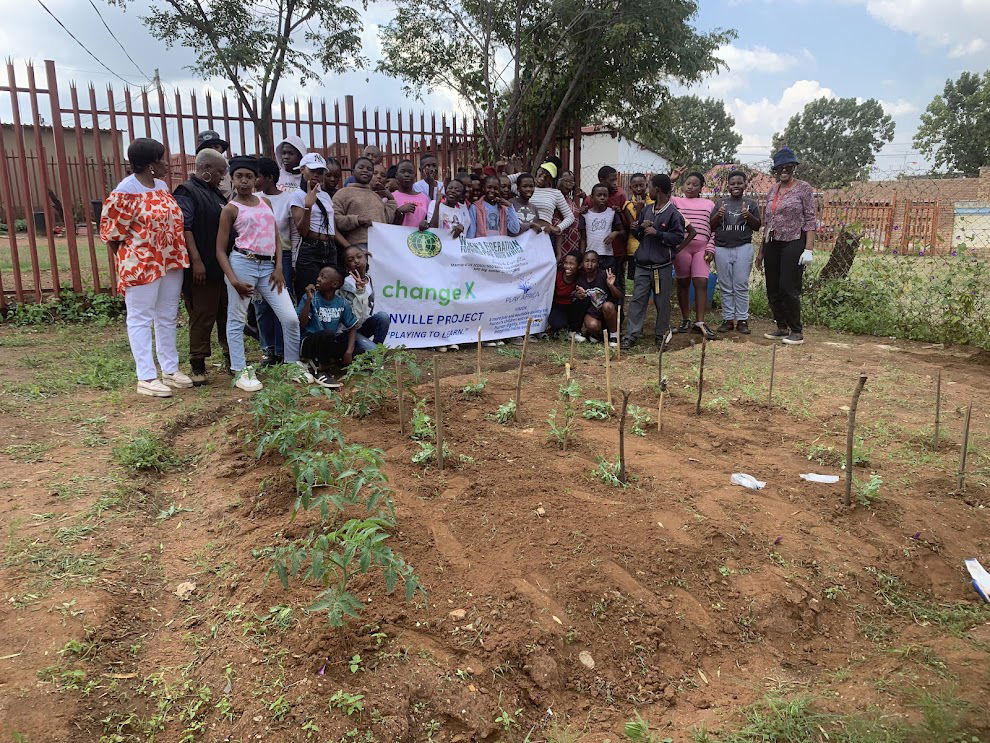
Florida Yadao Ledwaba
The initiative focuses on promoting climate action, environmental sustainability, and hands-on agricultural education for children. By engaging students in growing their own vegetables, the project raises awareness of sustainable practices and equips them with valuable life skills.
At Emisebeni Primary School, something inspiring is taking root—literally. In March 2025, WFWP South Africa launched a gardening project at Emisebeni Primary School, with sponsorship from Play Africa. The vibrant gardening project that is not only transforming the school grounds but also nurturing young minds with lessons in climate action, sustainability, and healthy living.
The initiative began as a way to introduce children to the basics of planting and caring for vegetables, but it has quickly grown into much more. The garden beds, carefully tended by eager students under the guidance of their teachers and community volunteers.
Each planting session becomes a hands-on classroom, where children learn the importance of soil health, water conservation, and organic farming practices.Beyond the practical skills, the project carries a powerful message about environmental responsibility.
These experiences not only enrich their education but also inspire a sense of ownership and responsibility towards the environment.The garden is already bearing fruit—literally and figuratively. Fresh produce from the garden supports the school’s nutrition program, ensuring that children benefit from healthy, home-grown meals. The sight of their own harvest on the lunch plate fills the students with pride and a new appreciation for the value of food.
Principal Mrs. Mkhulise shared her delight about the initiative: “This garden is more than just vegetables—it is a living classroom. Our children are learning skills they will carry for life, and they are also learning to care for the earth. It is heartwarming to see their excitement when they see the plants grow.”
The students themselves are equally enthusiastic. Sipho, a Grade 7 learner, said: “I didn’t know planting could be fun. Now I understand how much work goes into growing food. I want to teach my family what I learned here.” Another student, Ayanda in Grade 4, added: “I love watering the plants. It feels like we are helping the earth and helping ourselves too.”
Of course, the journey hasn’t been without challenges. Limited resources, unpredictable weather, and the need to keep students continually engaged have tested the resilience of the program. But with creativity and teamwork, solutions such as mulching, shade nets, and gardening competitions are helping the project thrive.What stands out most is the sense of community that the project has sparked. Parents, teachers, and local environmental groups are working side by side, turning the schoolyard into a hub of collaboration and learning. Together, they are showing that climate action can start small—right in a school garden—and ripple outward to make a lasting impact.
The gardening project at Emisebeni Primary is more than an environmental program; it’s a story of hope, resilience, and education in action. It is sowing the seeds of a greener future, one child—and one vegetable—at a time.
